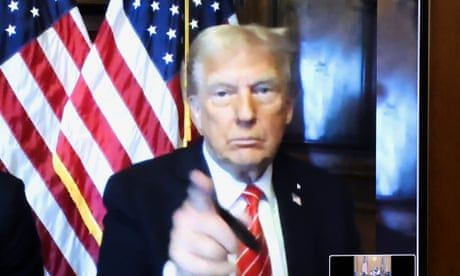
At many points, it looked as if he never would be sentenced. That he was sentenced to nothing, then, is itself a small victory
What kind of a sentence, exactly, is an “unconditional discharge”? When Judge Juan Merchan, of New York, issued the sentence on Friday, he declared that President-elect Donald Trump, convicted in his courtroom of 34 felonies, will face no jail time, no probation, and no fine for falsifying business records in order to conceal an affair he had with the adult film actress Stormy Daniels in the days leading up to the 2016 election. His punishment, that is, is that there will be no punishment at all.
Trump was never likely to get jail time, which would have been unusual for any defendant faced with these charges, and over the past days Merchan had signaled that he would not impose probation, either. And maybe that’s just as well – any punishment or sanction at all that he had imposed on Trump would have been likely to be appealed and suspended, at least for the duration of Trump’s time in office. There was, that is, no formal mechanism really available by which the criminal justice system could punish Trump for the crimes he was convicted of. “This court has determined that the only lawful sentence that permits entry of judgement of conviction without encroachment on the highest office of the land is a sentence of unconditional discharge,” Merchan said, explaining his reasoning: there is no way to punish a man who is about to be the president. In a sense, the sentencing merely confirms what many of us already know: that by virtue of who he is, Trump is beyond the reach of consequence.
Continue reading...